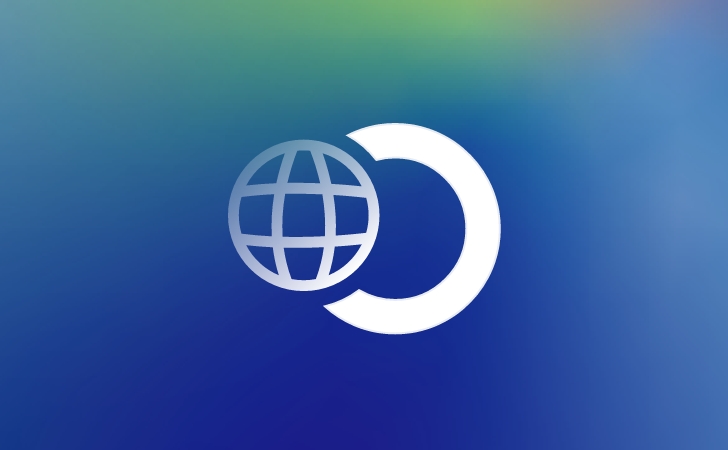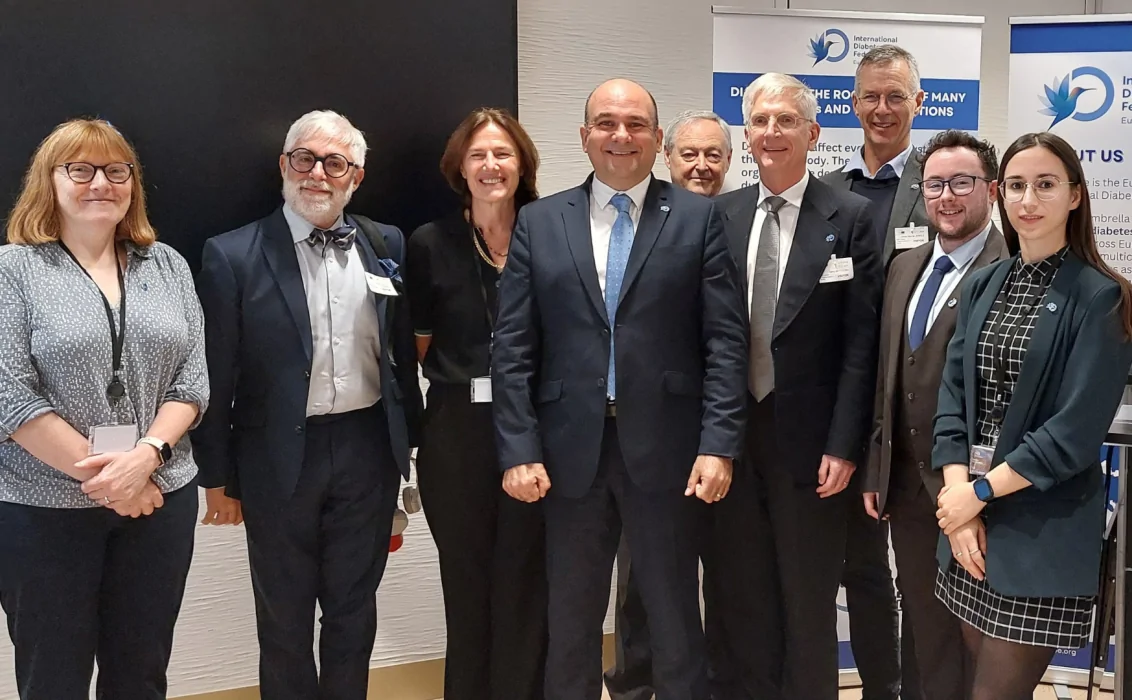People living with diabetes require uninterrupted access to essential medicines, supplies, technologies, and care. Without insulin, a person with type 1 diabetes will die within a few days, and the lack, or irregular supply, of other diabetes medication, supplies, devices and/or technologies will also adversely affect the ability of all people with diabetes to manage their diabetes optimally and prevent the development of potentially fatal, short- and long-term complications.
The measures put in place by many governments around the world to fight the spread of COVID-19 have the potential to disrupt production capabilities and supply chains dramatically, which could hypothetically create shortages at the point of sale/supply.
The movement of goods, for example, while not generally targeted by the new measures, may be hindered by a reduction in the number of available flights, airport closures, and delays at border posts resulting from increased controls. Production capabilities might be similarly hampered by the lack of availability of the necessary raw materials and components, increased demand for competing products reducing the production output of some goods and materials, and staff shortages. An example of these types of problems have been in evidence for quite some time in the ability of countries to administer COVID-19 tests. Many countries have found themselves in the position of having to close testing centres, or conduct fewer tests than might be desirable, for lack of supply of reagents.
Along with the real harm that a shortage would bring, the uncertainty also creates increased anxiety for people living with diabetes, some of whom are additionally experiencing financial difficulties from loss of employment, for example.
In the short term, guaranteeing continuous access to the necessary medicines, supplies and devices requires governments, national health systems as well as pharmaceutical and medical devices companies to:
- Review their supply chains throughout the crisis to identify risks to their supply and logistics channels and ways to address them;
- Establish optimal ways of replenishing and distributing stocks to critical locations and assess short-term needs to guarantee the means are there to meet them.
For governments specifically this may also mean reviewing their own guidance to allow products to flow more freely, taking into account that a lot of new customs restrictions between countries have been imposed and numerous measures of isolations of cities and whole regions within a single country might be temporarily installed. In these circumstances it is of utmost importance to ensure the timely and uninterrupted passage of insulin and other diabetes medications.
A last facet of this is the need for safe working environments. Failure to provide these would undoubtedly lead to severe disruptions in supply. Once this crisis has passed, learning from the current situation and planning for future potential pandemics as well as taking a long, hard look at the structural organisation of the production and distribution of medicines, supplies and devices will also become a requirement.
Equally important for governments and pharmaceutical and medical devices manufacturers, is the need to communicate openly, transparently, and in a timely fashion in each country about the steps they have taken to guarantee supply and any challenges they may experience linked to their ability to supply their usual buyers/people living with diabetes. This can be done in a number of ways. For governments, through official bulletins, dedicated webpages and social media channels as well as directly via healthcare professionals (HCPs) and national patient and HCP organisations. For pharmaceutical and medical devices manufacturers, this may take the form of communication through their country offices or those of their distributors and/or dedicated webpages and through social media. Communication directly to national patient associations might also help address concerns. A good, additional, general information source on the EU response can be found here.
Reassuringly, at least on the manufacturers’ side, many status updates have been published that suggest companies will be able to continue serving their customers.
IDF Europe thanks its partner companies for the information they have shared and remains in close contact with them to follow the evolution of the situation.
An overview of recent statements from companies in the diabetes field are presented below (NB: list not exhaustive; more information and updates on company websites).
Insulin and other diabetes medication
• AstraZeneca through a dedicated page on its website has stated that its medicines supply chain is robust and that it continues to monitor the situation closely.
• Boehringer Ingelheim stated that it is doing everything it can to safeguard the continuity of supply.
• Eli Lilly, in a press release dated March 24, stated that it does not currently anticipate any shortages for any forms of insulin. They are closely monitoring their supply chain for any impact and their insulin manufacturing sites in both the US and Europe remain operational with increased precautions in place to protect the supply of medicine and the welfare of their employees. Lilly further added that it does not source active pharmaceutical ingredients (API) for any of its approved medicines from China.
• Janssen/J&J provided a statement on its dedicated information page relating to COVID-19 stating that the company has robust continuity plans in place and that it does not see any supply interruptions for either of its pharmaceutical or medical devices products.
• Mylan has a dedicated news hub, which provides regular updates.
• Merck Group (Merck KGaA) made an announcement in early March that it was not anticipating any issues with regard to its supply chain.
• Merck/MSD on its dedicated US webpage stated that there is no current impact but that it is continuously assessing its supply chain.
• Novo Nordisk indicated also on March 24 that it is well prepared for such a situation and has an inventory policy that serves long-term supply; that it is not experiencing any supply constraints in its production, distribution or warehouse storage; and that all necessary actions to prevent disruptions have been taken. It is in close contact with its suppliers to preserve the flow of needed raw materials for the production of its medicine.
• Pfizer also posted a statement on a dedicated webpage that said there had been no disruption to date and the company had implemented a preparedness plan to control site operations.
• Sanofi similarly indicated that it is working on the continuity of its supply through close collaboration with its suppliers throughout the world and does not at this time anticipate any impact on its supply and manufacturing operations nor does it anticipate insulin shortages for people living with diabetes.
• Teva in an updated webpage on April 1 confirmed that its supply chain remains largely uninterrupted and with adequate inventory. It further stated that it has inventory and redundancy plans in place to address potential shortfalls.
Supplies, devices, technologies
• Ascensia stated on March 19 that there appeared to be no immediate impact on the supply of its test strips and meters, and it did not anticipate any short-term issues related to the supply of these products due to COVID-19
• Becton Dickinson, in a statement updated on March 24, shared the news that its manufacturing and distribution centres across the world are operating normally and that in European countries such as Italy, Spain, Ireland and France, where stricter lockdown measures have been imposed, BD has the measures in place to ensure business continuity.
• Dexcom (choose country for information in relevant location), stated that it has reviewed its supply chain in detail, and that while the company will continue to monitor it closely, it is not currently anticipating any interruptions to its ability to produce and supply products.
• Insulet also confirmed that there is no anticipated disruption to supply and no change to ordering process. An Insulet Alert (choose country for information in relevant location) has been put on its website and provides a Q&A on continuity of supply and safety of its products
• Lifescan issued a press release which detailed its close collaboration with partners to guarantee consistent product supply and availability.
• Medtronic launched a special Covid-19 page where it stated that the company has rigorous business continuity plans in place to ensure the safe manufacturing and delivery of its products. On April 2, it stated that there hasn’t been a significant impact to its operations from the virus and that it has enough supply to service people with diabetes across the globe with their normal orders.
• Roche confirmed that its manufacturing and supply network has robust plans for dealing with crises. Roche Diabetes Care’s production is up and running. It is working diligently to ensure the continuity of its product supply. At this point in time, it does not have any supply chain disruption in relation to COVID-19. The delivery of products to/from affected countries is stable. Its warehouse stock is sufficiently covered. All Accu-Chek products are available as usual.
• Tandem said that its manufacturing and warehousing facilities operate as normal, and that the company does not anticipate a shortage of pumps, infusion sets, cartridges or other supplies.



